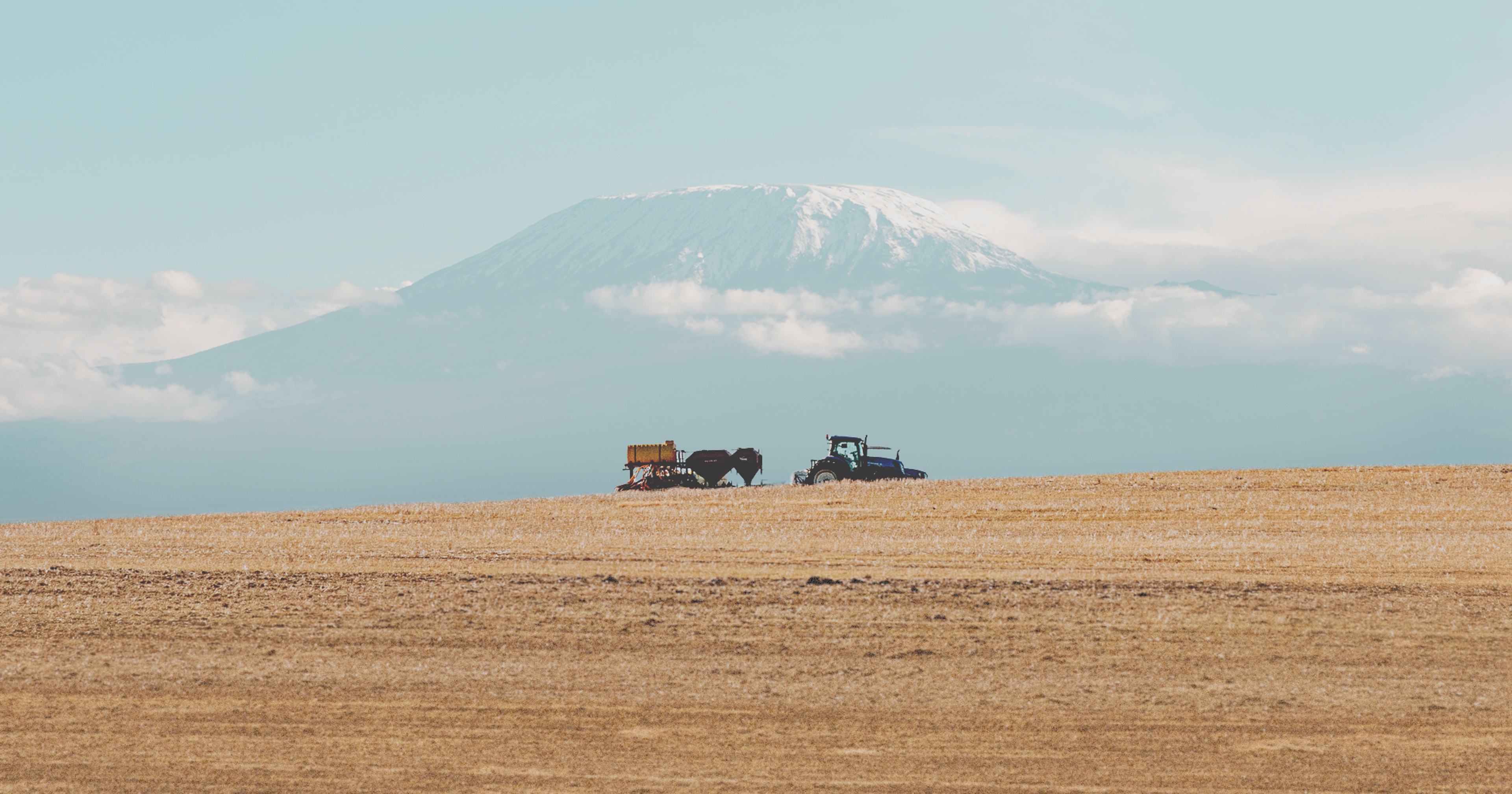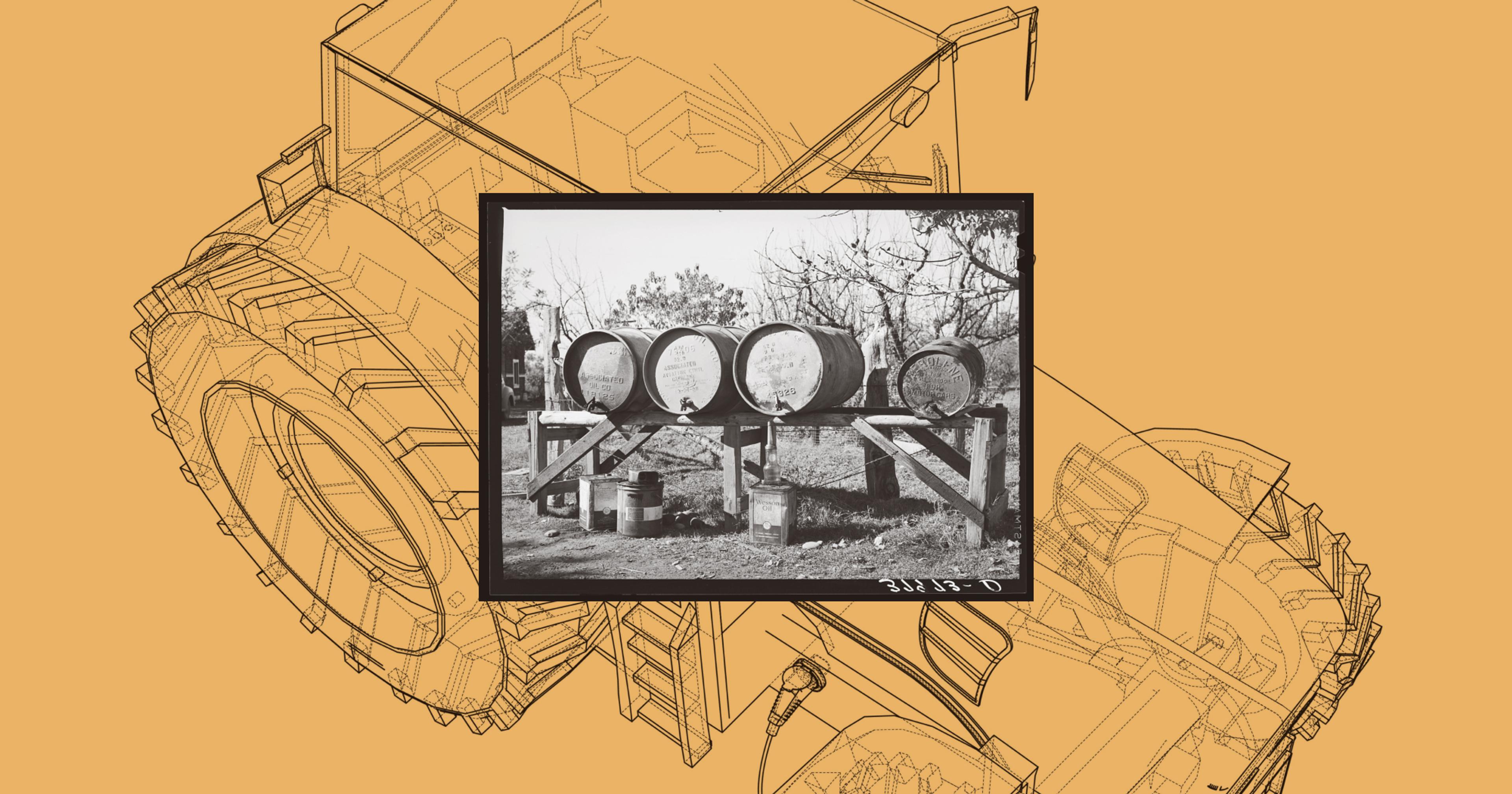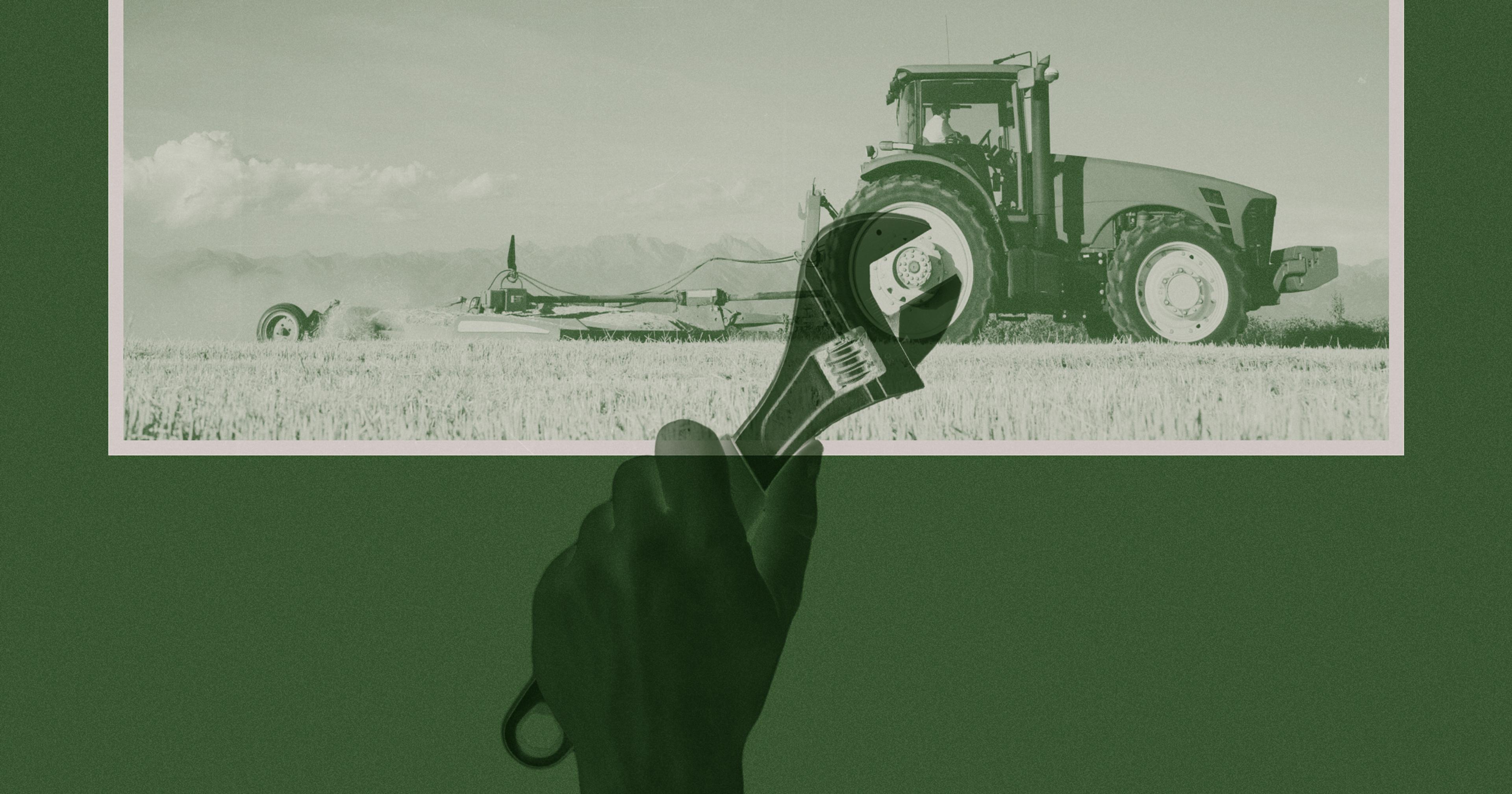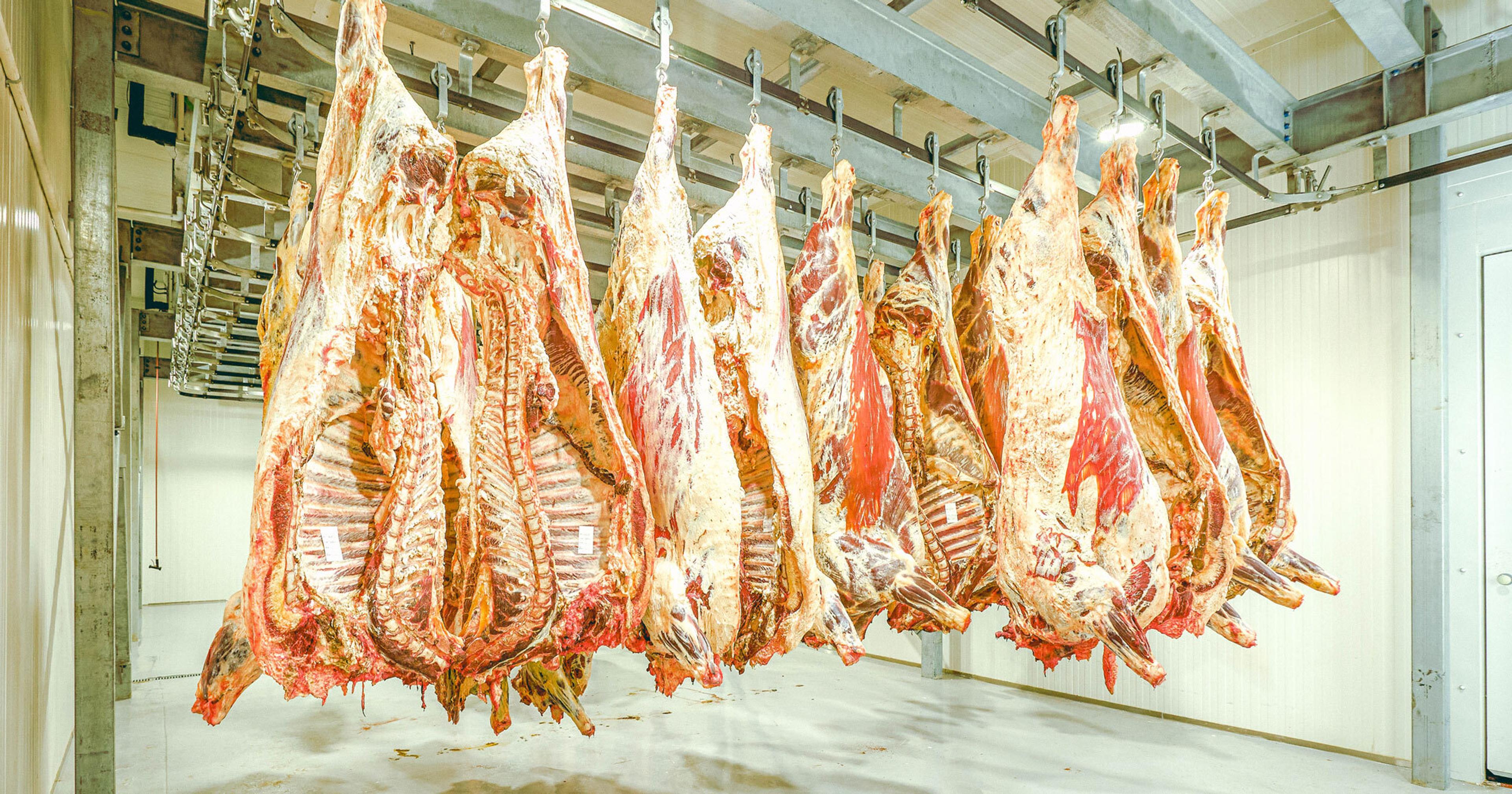Very few farms in Africa are mechanized, but a handful of ag-tech startups are trying to get tractors to the masses.
This story was produced in collaboration with EGAB.
At the break of dawn in Kitale County, Kenya, Kenneth Kipchumba tightens his grip on a worn-out “jembe,” the Swahili word for hoe, and heads out to his five-acre farm. The soil is rich but the work is grueling, and with no access to affordable tractors or modern machinery, he spends countless hours under the sun, manually tilling rows for watermelons, maize, and millet.
Kipchumba is among the continent’s 65 percent of smallholder farmers for whom manual labor remains the norm, stalling agricultural productivity and threatening food security. Scarce and costly mechanization forces them to rely on sheer muscle and willpower, limiting yields and livelihoods.
“Tractors are almost nonexistent in the village, and when they do show up, they’re either too expensive or too few to meet everyone’s needs, forcing us to make tough choices,” Kipchumba said. “The planting season starts in April, but we had already started preparing the plots in December,” Kipchumba explained. “It’s time-consuming and less efficient. We get to [only till] the upper surface of the land, which could be easily uprooted, as sometimes strong winds come, and the soil is gone. Now you have to dig again.”
For much of the world, ag-tech has grown to encompass drones, robots, and other advanced technologies to ease crop cultivation. But for most farmers in Sub-Saharan Africa, even securing relatively old technology such as tractors remains a challenge. But while this greatly affects the productivity level of farmers in Sub-Saharan Africa, there are a handful of startups trying to change that. In the face of significant funding and ecosystem challenges, they have seen some successes.
Africa has just 1.3 tractors per square kilometer, a stark contrast to, say, Brazil’s 116 or India’s 128. According to Ohio-born Jehiel Oliver, CEO of Hello Tractor, a Kenya-based, John Deere-backed ag-tech company working to bridge the gap between farmers and mechanization, this shortfall is largely driven by “capital expenditure burdens, a lack of financing, and de-risking structures that continue to hold back mechanization across Africa.”
“In Sub-Saharan Africa, the liquidity isn’t there to address the investments needed for our farmers to be competitive globally, so innovation is needed — specifically, technology applied in an intelligent way to reduce the [capital expenditure] burden that farmers would bear to reach [high] productivity levels,” said Oliver, who was appointed to the President’s Advisory Council on Doing Business in Africa under the Obama Administration.
Oliver also explained that “while tractors are capital-intensive,” the company has expanded beyond the traditional ownership model where each farmer owns a tractor. Instead, they leverage technology to “spread the cost of a single tractor across many farmers,” making access more affordable and “significantly reducing the capital expenditure burden.” In practice, this may mean paying less but only getting a tractor on a part-time basis.
Hello Tractor and other firms like Nigeria’s Traxi and Ethiopia’s Lersha are part of a growing wave of startups shaping the future of Africa’s agricultural mechanization. These enterprises provide a range of services to farmers, from land preparation to harvesting.
“It truly takes an entire support ecosystem to ensure machinery reaches farmers and meets their agricultural needs.“
Hello Tractor, through its software technology and financing programs, operates an amortization scheme that helps farmers become tractor owners within their communities. These programs, according to Susan Njihia, innovation lead at Hello Tractor, have enabled the firm to build a functioning ecosystem of 4,500 tractors and combine harvesters, personally financing 198 of them.
This initiative has benefited farmers across Nigeria, Kenya, Uganda, and Rwanda, with plans to expand into Ethiopia. To date, Hello Tractor has mechanized 179,500 acres and serviced 199,800 smallholder farmers.
“We’ve gradually become one of the largest financiers of tractors on the African continent. It truly takes an entire support ecosystem to ensure machinery reaches farmers and meets their agricultural needs. Our Pay-As-You-Go tractor finance model offers credit to traditionally unbanked entrepreneurs at the base of the pyramid, enabling them to become tractor owners,” Oliver explained.
Njihia noted that, unlike other regions where large-scale mechanization depends on individual ownership and well-established infrastructure, Hello Tractor has adapted to the unique realities of African smallholder farming.
Farmers like 40-year-old Bala Chuseh from Pangri village in Taraba State, Nigeria, say they have benefited from Hello Tractor’s mechanization programs, successfully cultivating multiple crops last year’s season.
“I planted maize, guinea corn, and beniseed,” he said.
Jkusenga went on to explain that tractors are a “rare sight” in his community, leaving him with no choice but to hire 15 laborers to cultivate cabbage, lettuce, spinach, and other crops.
However, most smallholder farmers across Africa still lack access to such services. This includes Kipchumba, who has never heard of Hello Tractor — or any ag-tech companies, for that matter. His experience is shared by fellow Kenyan farmer Dennis Mutua Jkusenga.
Jkusenga went on to explain that tractors are a “rare sight” in his community, leaving him with no choice but to hire 15 laborers to cultivate cabbage, lettuce, spinach, and other crops on his 10-acre farm in Machakos County, Eastern Kenya.
“With a tractor, it takes about a day to till a plot, but with human labor, it takes much longer, even for your produce to be ready, because of the extra time spent using manual labor,” he said, adding that when farmers rely on human labor, there is always a risk of injury, which could become “very costly.”
The solutions to the challenges of access, according to Theo Chiyoka, CEO of Traxi Continental Limited and Vida Verde Limited in Nigeria and Uganda, are still evolving, as inaccessibility of machinery remain a significant issue.
At Traxi, they use a tractor-hiring model in several Nigerian states and collaborate with local associations to ensure smallholder farmers have access to mechanization.
“Our model is simple: We purchase and provide the machinery for hire. A farmer rents the machine and only pays for the work done and the time it’s used. Any idle time is our responsibility, so we must ensure the machine is used efficiently. The machine pays for itself through its work,” explained Chiyoka.
Recent USAID funding cuts have severely threatened farmers’ access to these services and slashed Vida Verde’s revenue by up to 40 percent.
He further explained that they had previously attempted to involve the government in addressing the issue, but acknowledged that “it’s a work in progress.”
Soil testing services are also a key component of Traxi and Vida Verde’s approach to mechanizing smallholder farmers in Nigeria and Uganda.
“[Soil testing] determines moisture levels and which crops we can grow. Traditionally, soil samples had to be sent to a laboratory, and it would take seven days to receive results,” Chiyoka said. “These results are often too technical and require a specialist to interpret and recommend action. Now, we can use mobile phones, portable testing scanners, satellites, and have the information relayed via WhatsApp.”
Nonetheless, recent USAID funding cuts have severely threatened farmers’ access to these services and slashed Vida Verde’s revenue by up to 40 percent, he noted.
A lot of work has come to a halt, Chiyoka explained. He had contracts with NGOs that were meant to provide soil-testing services to farmers in rural areas across Uganda, Nigeria, and Mozambique. With those agencies now closed, it has led to the shutdown of some mechanization operations for Vida Verde Limited and Traxi.
Chiyoka added that the funding cuts also suspended a job-creation plan targeting mechanization and other agro-allied services, which was projected to benefit 25,000 youths over 10 years.
Hello Tractor, like others in its category, lost a potential funding partner, due to cuts of up to 83 percent of USAID programs announced in March by the Trump administration.
“The challenges that these firms are facing with mechanization cannot be separated from the broader challenges of agricultural development in Africa.“
Most of these ag-tech firms, according to Oliver, continue to grapple with the same longstanding challenges that “have held back Africa’s agricultural sector for decades.”
Idris Badiru, a lecturer at the Department of Agricultural Extension and Rural Development, University of Ibadan, noted that while ag-tech operations supporting mechanization are “valuable,” solving agricultural problems requires “a collective effort from all stakeholders.”
“The challenges that these firms are facing with mechanization cannot be separated from the broader challenges of agricultural development in Africa. The key issues are finance, infrastructure, and knowledge management and transfer,” Badiru explained. “Small-scale farmers are not considered creditworthy. There is often no electricity to power some of these mechanization technologies. Technical know-how is still lacking, and we face major hurdles within the agricultural extension delivery system.”
Badiru criticized African governments and their agencies for failing to fulfill their obligation to farmers and leaving social entrepreneurs unsupported.
“In the case of credit facilities, we need to go beyond relying solely on the government. There is a need for angel investors and social entrepreneurs who are interested in the agricultural component but are not solely focused on profiting from farmers,” he said. “The governments must create a conducive environment so that these agribusinesses can deliver mechanization services to farmers at minimal cost, without negatively affecting consumers in the long run.”










